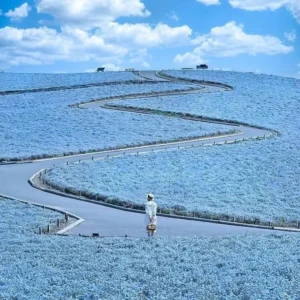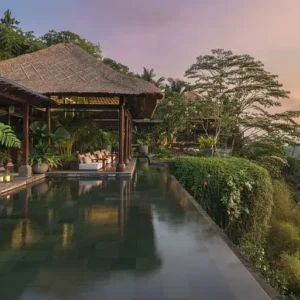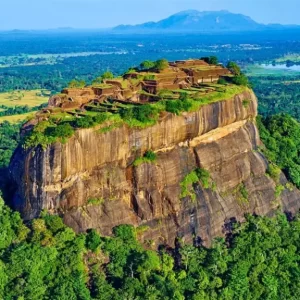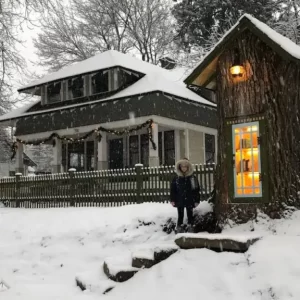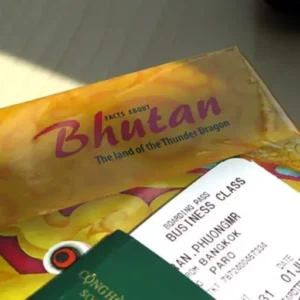01. Money
One of the biggest problems with Myanmar’s fledgling tourist industry is getting hold of enough cash to pay for things. Until recently, you would struggle to get money from a bank in the country and there were really only one or two ATM machines.
Conditions are getting better but exchange rates tend to be pretty bad in the country, and ATMs will only give you Myanmar kyat. This means you will need to bring enough American dollars and some kyat with you to pay for the trip. Kyat is good for food, gifts, and public transport, while dollars should be used for trains, tourist attractions and hotels. More recently, kyat is accepted for nearly everything and you can get by with far fewer dollars that you previously needed.
Still, plan ahead and take a few more dollars than you need. Make sure you have a lot of your cash in smaller denominations (they might not be able to split them so easily) and don’t take any torn old bills with you. They could be rejected. You might be asked at an airport to prove you have enough cash for your trip, and since you need to have enough make sure you do.
02. Internet and Phone
Making phone calls to other locations in Myanmar is simple enough at your hotel or guesthouse. Calling out of Myanmar can be difficult as international roaming has not yet been established in many locations, and will often require a SIM card bought in the country.
The much easier option is to just use an online chat service to speak to people back home or to arrange the next leg of your journey. Skype and other applications now allow you to make phone calls for a small fee.
Getting on to the internet can be tricky as it is often slow and unreliable but the Wi-Fi in fancier hotels is adequate, and you can often use it in exchange for buying a drink in one of their cafes.
03. Common Phrases
For most of your journey it will be easier to try your best in basic English and to point a lot because Burmese is a difficult language if you’ve only got English on your tongue, but it is worth learning some basic Burmese phrases to impress the locals with
Hello = Min ga lar par
How are you? = Nei Kaon la?
Please = Kyeizu pvu yue
Thank you = Kyeizu tin ba de
You’re welcome = va ba de
Yes = Ho de
No = Ma ho bu
Good morning = Mingalabar
Do you speak English? = In glei saga pyaw tat de lu di ma shi la?
I don’t know = Ma thi bu
04. Translation apps
If you want to learn the language or need some help with translating you could try out a few of these apps for your phone. Never overlook the value of a basic phrasebook though – there’s nothing worse than trying to show a taxi driver your out-of- power phone.
iBurmese is an app available for $2 for the iPhone and will cover the basics you need to help get your point across.
Yangon Taxi Translator is also $2 and will give you a list of hotels and addresses, and will give you help in telling your taxi driver what you are looking for.
Myanmar Alphabet not only shows you what the different letters of the alphabet look like and how to write them, but it even helps you pronounce them. Again this is $2 for iPhone.
05. Keeping Healthy
Unfortunately, Myanmar is a developing country and its healthcare is not stellar, if you get sick you would most likely need to use a private hospital and the best option is to hop on a flight back to Bangkok for anything at all serious (infections are a real possibility if undergoing surgery).
On the plus side, getting Western medication in local pharmacies is cheap and easy so any remedies for minor ailments should be easily treated.
The biggest issue to battle will be hygiene and to be frank-it’s not great in Myanmar.
The general rules for a lot of developing countries apply here: don’t drink the tap water (and avoid ice), maintain perfect hygiene, carry sanitizing wipes with you and use them regularly, don’t risk eating food that you aren’t confident has been prepared somewhat hygienically, and try to be constantly vigilant about what you are putting in your body.
Even with all of that said, if you eat the local food and spend a bit of time here you will likely experience some kind of diarrhea. So be prepared.
06. Vaccinations and disease
If you’ve travelled in the developing world or even Southeast Asia, you will likely have covered many of the red flag issues for travelling in Myanmar in terms of potential diseases.
If you are a keen traveler, a Hepatitis B vaccination should be on your to-do list anyway. Cholera and rabies are present in Myanmar, but they are not a huge concern if you are going to be in the cities and usual tourist routes. If you are going to be in an area with a cholera outbreak or you are travelling to carry out charity or health work, you may consider taking a cholera vaccination.
Malaria is an issue in the more rural parts of Myanmar but within the larger cities you will be fine just by making sure you are careful to avoid getting bitten wherever possible. The biggest threat of Dengue fever is if you get bitten in the middle of the night.
07. General health tips
Myanmar is a hot country so make sure that you have adequate protection from the sun (sunscreen might not be available everywhere you go) and that you keep hydrated as you go along.
Power cuts happen frequently in and out of cities in Myanmar as the power sources are not entirely reliable, so make sure to have some kind of flashlight with you or that your phone is charged enough to shine your way out of a bathroom if you get caught out.
The footpaths can be uneven as well, so make sure to pick your feet up and avoid tripping. Traffic can be erratic and hectic if you are not used to it. When crossing the street, see what the locals are doing and follow them as they cross to stay in one piece.
In parts of the country-insects, snakes, and monsoon rain can be real life-threatening issues but aside from mosquitoes you should not encounter too many of these dangers. Dogs can be a nuisance, especially when wondering around alone at night. Try to avoid them if possible as they may have rabies or not have vaccinations.
08. Staying Safe Crime
Crime in Myanmar is surprisingly rare and you will be safer from crimes, petty or otherwise, than you would be in much of South East Asia and even many tourist hotspots around the world.
The country may be developing and you may not have the level of support you would in more open nations, but the punishments for crime in Myanmar can be very severe and the networks of crime and scams are still waiting to be developed as they most surely will be, as tourism grows.
Police presence is wide spread in the country and thanks to the rather quiet nightlife, many of the more obvious dangers (such as drunkenly wandering around dark alleys of cities you don’t know) are easier to avoid.
Keeping an eye on your possessions and using your usual traveler’s street smarts should leave you more than fine during your trip.
09. Scams
Crime is rare, but scams are common and getting more plentiful. It’s unlikely you’ve chosen Myanmar as your very first trip abroad, so many of the usual scams you’d expect in poorer countries are here as well.
If a taxi driver is telling you that the hotel you booked (the one with rave reviews online) has burned down or is full of rats, lean towards not believing him. Touts of this nature crop up and they will try to convince you to go to their recommended spot above the one you have already chosen.
Of course they get a commission if they reel you in, and there is no reason to believe their suggested accommodation will be any good. Don’t give in to the pressure. There’s no need to be rude, but be firm if you have to and make sure they take you to your destination.
As usual, be wary of any unsolicited strangers offering too much help beyond what you desire or require. You don’t need to pay someone to look after your shoes at a temple (Buddhists aren’t going to steal them from a holy site anyway) and if someone is walking you somewhere they might stop at their friend’s shop to see if you want to buy something.
If you want a tour guide, then hire one: don’t let some stranger decide to be one for you. Children may try to crowd you to beg or sell postcards. Generally, try to avoid encouraging this behavior and take only the money you think you’ll need for the door. Monks will generally not give tours and they will not ask for money: keep this in mind, especially in Mandalay.
If you can, try to book things in advance and when eating out try your best to pick a restaurant with a menu that has agreed on prices beforehand. Expect to pay more than locals and in other nations with big competitive tourist industries, but if you are travelling on a budget, stick to it.
When doing something that won’t have a fixed price, such as a taxi ride, try to make sure that you agree on the price before you get in and start going. When you can just walk away, you have a lot more leverage – it may never be that much money you are charged, but these things can seriously add up.
If you feel that you want to spend money in the country to help out the locals, then do so by staying in private hotels and spreading your money around to different stores and cafes. Don’t give all your money to one or two unscrupulous taxi drivers that make a living ripping off tourists.

